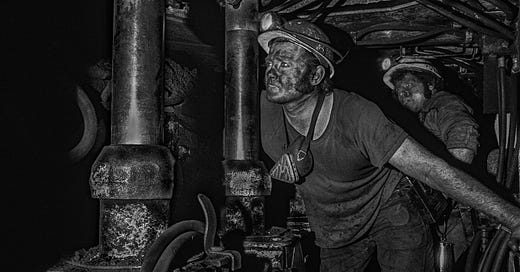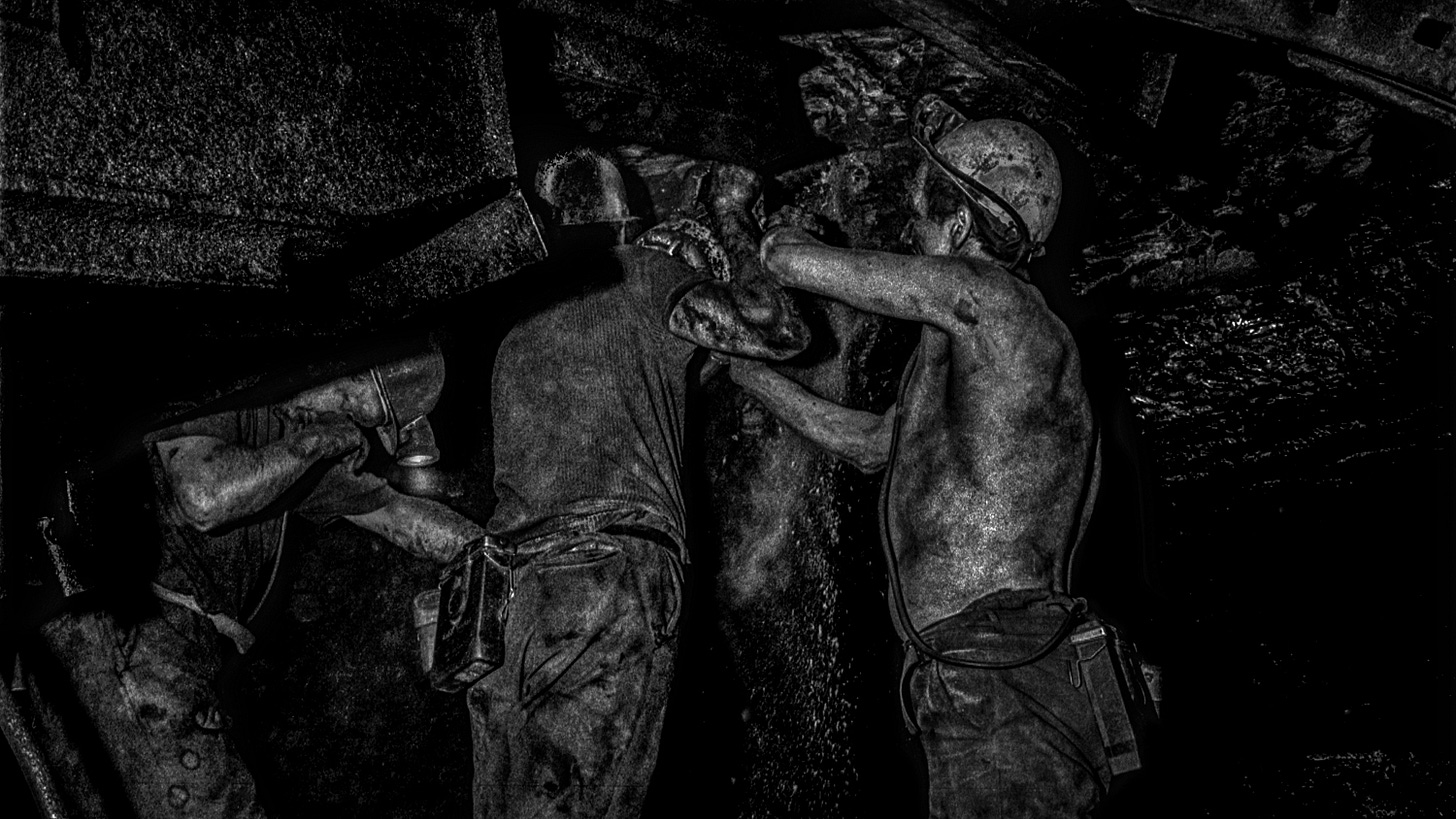The miners tramp through the coal-dust coated village streets to the mine head. They collect their gear, hand in their ident badges and climb the clanging metallic stairs to the cage (yes it is called the cage) where they pile in shoulder against back, already melding into solidarity for their employer, their community, their country’s economy?
Well, not really but for their brotherhood of fellow workers, those alone who understand this day-by-day encounter with a horrible death, with the ever increasing blood spattered coughing, with the heat and the noise, the exhaustion and the fear that coils around their legs.
These men pictured were the coal face cutters. They drive the huge whirring dust spewing blade forward as the newly cut ceiling collapses above them. There is a tunnel IN and a tunnel OUT through which the train cars carry the cut coal to the lifts and through which the exhausted men rattle their way back to the cage.
I had a large flash tube weighing perhaps 20 kilos under my right arm. While I tried to balance and point it using my ribcage and arm as a guide, my hands gripped my Leica. The bulky unit was specially made to be able to safely charge and flash in the gases of this deep underground hellhole where a wrong spark could set off a rolling explosion and turn the dusty air into an inferno The only light otherwise was from our helmets.
When i finished shooting at the face I had to traverse the space across the blade to reach the ‘OUT’ tunnel. An older miner looked at my very pale sweating face, handed me his tobacco pouch and told me to “take a pull and chaw it”, but under no condition was I to swallow the tobacco laden saliva. I thanked him and began the long trek in the dark back to the cage. Moving as quickly as I could, I disregarded what I had been told about keeping my head down as I walked and sure enough smacked into a torn shard of the metal sheets installed all along the exit tunnel to keep the loose rocks, stones and soil in place. The smack on my helmet against the ripped metal banged my head and of course as I gulped and swallowed the tobacco laden saliva which immediately hit my stomach and…..well anyway it was all in a days work documenting the miners of England.
When I hear about ‘the dignity of labour’, I think of men like these who were heroes of the economy, the men who kept the lights and heating on, the men paid crap wages but were oh so nicely referred to until they deemed it vital to strike for decent housing, schooling, medical care and wages, at which time they and their unions were overwhelmed by the police as their unions were destroyed, along with their lungs. Then they were left in their gutted villages with few other skills and no viable local economy. Quickly forgotten they became the ex-heroes of the economy.
Next Week will be a story of results from the above.





